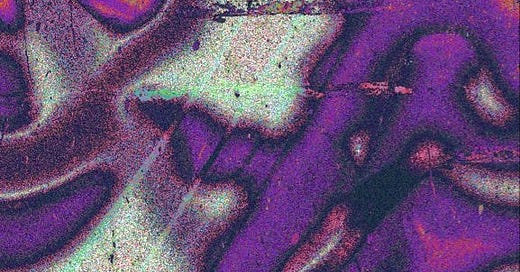howdy, friend. i pray this finds you alive and crawling towards your proverbial tenderness. please don’t forget my media recs at the bottom!
as we witness imperialism rear its ugly head, i find that November’s bleak nature is rather comforting. i am reminded that consistency and the routine of a dreary November, is actually a privilege. being able to savour the existential silence of this month, is something that i never thought i would be grateful for. but here we are. once again, faced with a matter of collective consciousness, rebirthing restorative justice and liberation for our siblings in Congo, Palestine and Sudan. however, this is not the primary focus of my piece. instead, i would like to dissect one of W.B. Yeats’s most revered poems, The Second Coming.
it is worth noting that Yeats is not my favourite person. neither are a lot of the poets, artists and intellectuals from this colonial decade. but i cannot ignore the unfounded spirit of his writing. it was honest and glazed with a juvenile sort of social irritation. both of which, i consider to be traits of a writer who yields to their condition. artists like Yeats understand that their words resurrect cavaliers of intersectional thought within us. and this is something i can truly get behind.
there is a moment in the poem, where he declares that a hypocritical tension exists between our characters and principles. interestingly enough, this didn’t appeal to me at first. after reading the poem several times, that stance wavered. for a moment, i idled at the fear that my actions as an activist, as a young woman of colour, as a writer and ultimately, as a human with empathy, were in vain. but that was because i had read his words and forsaken my own belief that the things i do, that the fires i have acted on in the past, were for a greater justice and peace. i had read his superlative criticisms of the world and digested it as the holiest truth. and then i remembered that conviction is a double-edged sword. a weapon in the hands of those who are courageous enough to speak. and speak, he did. it’s rather fascinating how one can abandon themselves at the sight of perceived intelligence. what convinced me that the principles i act on and the character i have grown into, were not ones that would be considered necessary? that i was a fool for doing precisely what Yeats himself had done; speak from the chest.
after briefly reconciling with myself, i had come to the realisation that his humour had played at my subtle insecurity. i was afraid of being ‘inaccurately’ conscious to the troubles around us. all the while, his message had suddenly become clear. when the world is in a state of constant disarray, there is always this vague, ominous feeling that an end is near. a feeling that leaves us uncomfortable with our actions thus far. so, my insecurity was something he had already noted. it’s reminiscent of a sacrosanct sort of guilt; a necessary shame we announce in confessionals. and honestly, this feeling is not always a lie. an end is near. but it isn’t the one we’ve crafted in our minds, nor would it be incited only by our very natural leanings towards hypocrisy. the further we look into ourselves to prepare for it, the more it will appear unlike anything we could have imagined. The Second Coming. it seems to crawl closer towards us as our communities’ bleed and states fall apart.
the deeper we submerge ourselves into this cesspool of prophecy, the harder it becomes to ignore what we perceive to be an esoteric analysis of our moralities. nothing will ever feel good enough when the systems built before us, were built to break us. but that does not give us the option to pacify ourselves and casually accept defeat. if anything, we should attempt to recognise a systemic pattern and unlearn the ways in which we feed into it. writers such as James Baldwin, Toni Morrison and Arundhati Roy, speak at large about this concept. i wholeheartedly suggest reading more of their works to unpack the magnitudes that exist in such an idea.
Yeats concluded with the following question: ‘And what rough beast, its hour come round at last, Slouching towards Bethlehem to be born?’. The phrase ‘Slouching towards Bethlehem’ has become synonymous with a slow coming of revelation, a revelation that is particularly apocalyptic and dystopian in nature. we may think of the politically violent cult of the Western world, as our brash sphinx. the capitalist monster, here to finish us at the last second. but to ‘slouch’ into tradition, in a time where it has done nothing for us but pose as a conduit to repetitive destruction, does not seem like a brilliant solution. if there is a revelation at hand, as Yeats proposed, i wonder if it was all that necessary? particularly as these imperial systems and their patterns of violent behaviour, continue to threaten our lives at every wake. we fully expect and anticipate them now. this is no new idea.
in time, i hope that our Novembers are not spent meditating on Yeats’s question. especially not when we inherently know the answer. but i do find a brief solace exists in his contemplations at large. as we continue to push forward and witness our communities undergo resurgence and growth, i pray that November may become a quiet and boring gift to those who cannot briefly escape the anguish incited by imperialism. i also pray that for the rest of us, dealing with an anxiety of perpetual second comings, that we will never leave the former behind. there is much to do before the final end appears.
see you soon. thank you for being here x.
🎵:
Noonday Sun - Field Medic
Sampha’s Plea - Stormzy (feat. Sampha)
Weary - Solange




